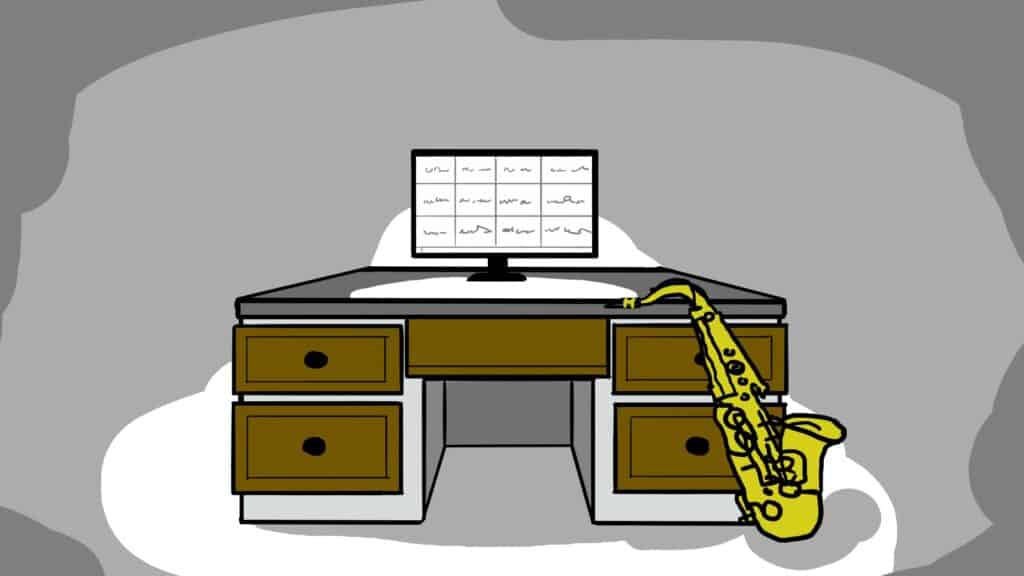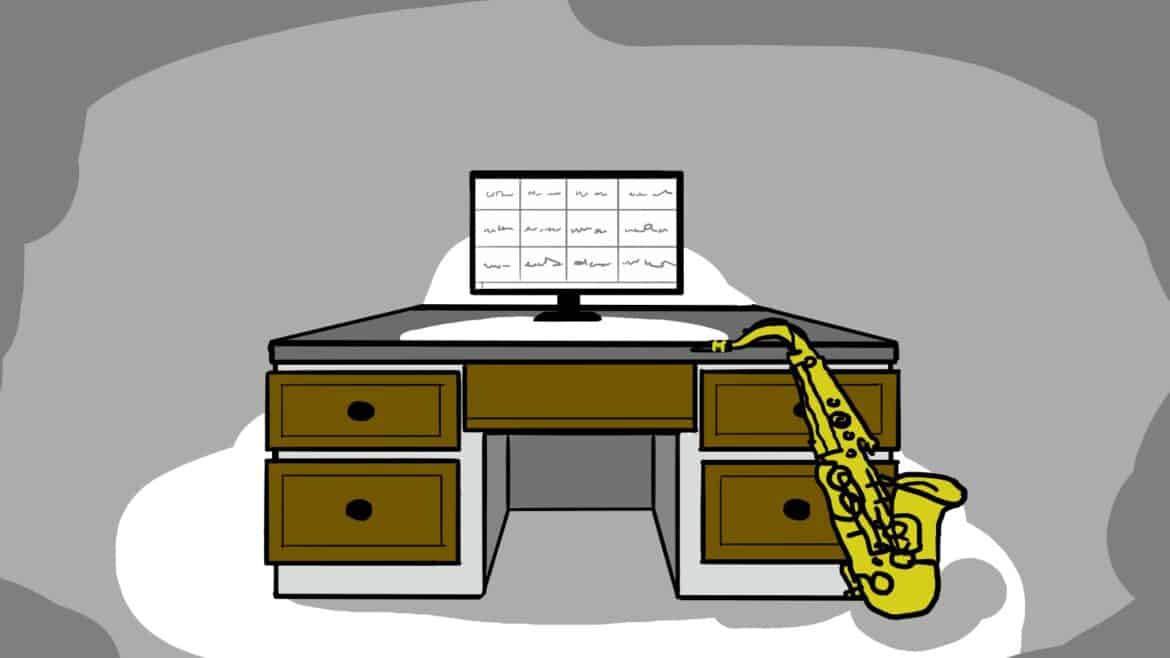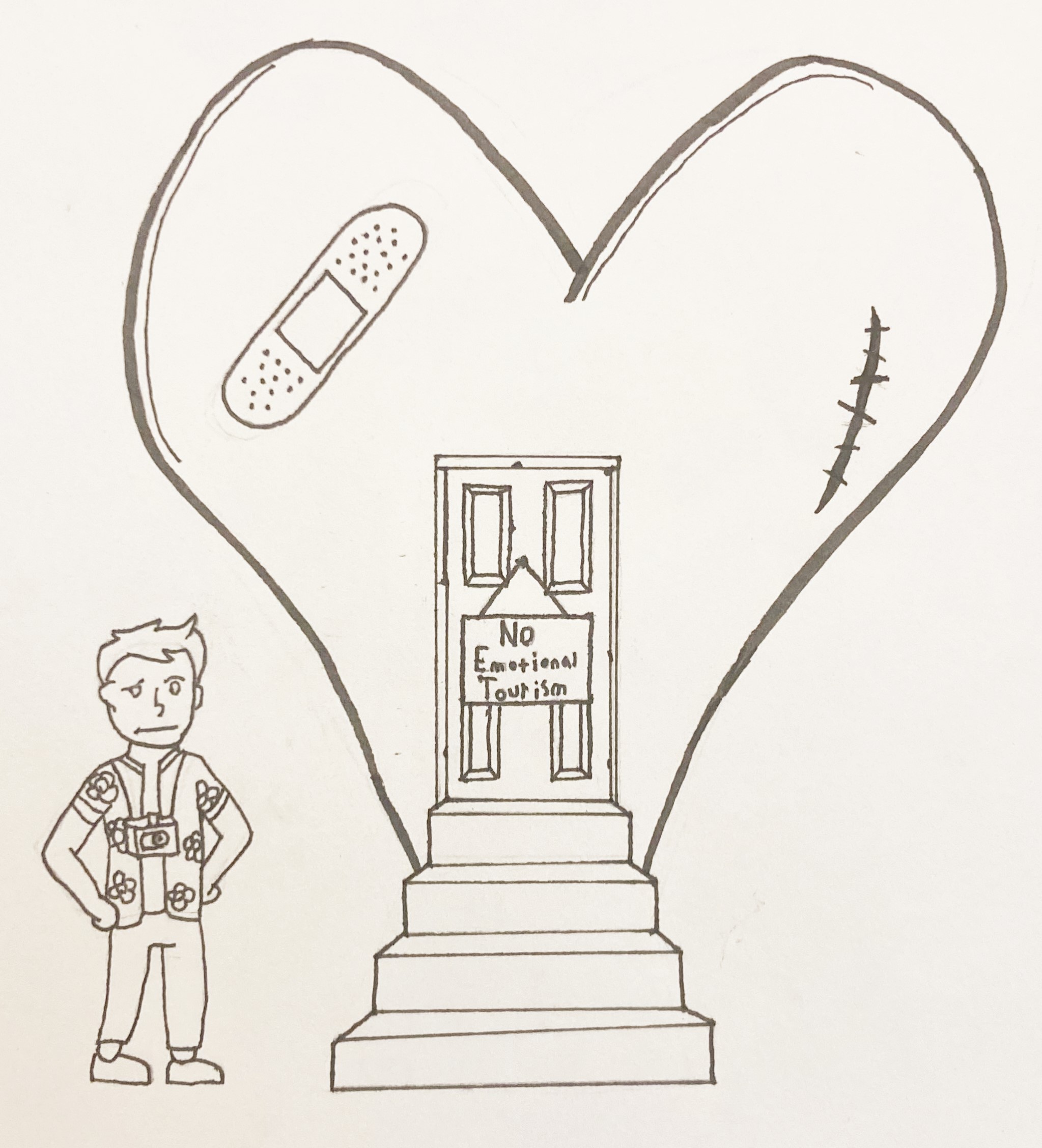
In this last year, COVID-19 has hit the music programs at Roosevelt especially hard — and it’s forced teachers, students, and families alike to change the way they embrace music education.
Music truly is a collaborative art, says Dr. Jean-Marie Kent, Roosevelt’s choral and vocal jazz director. “In the arts especially, and in music and drama, when you play in orchestra and play in band… things that you typically do together and sitting in rooms with groups of people.”
While we might be able to see each other over Zoom (if anyone actually turns on their camera), music is truly about the sounds and the feelings conveyed through each melody, something that spotty wifi and Chromebook mics can’t cover.
“The lag is the biggest thing,” says Kent. “We can’t make music at the same time together.” When practicing live, delay is hard enough to combat with three players, let alone an entire ensemble of several dozen. So, the sudden shift caused music directors across the district to scramble and find new ways of allowing everyone to play together.
At the beginning of the pandemic, it was hard to get students to show up, and so the class largely defaulted to lectures. “…It felt a little less like choir and a little more like, I’m going to tell you some stuff and you are going to listen and write it down,” Kent said. But now, with a nearly 100% attendance rate across the school, “students are making music, they are involved in the work,” in a way unlike any time before.
In the beginning of the school year, the district purchased Music First, a music-oriented learning management system for music departments in middle and high schools across Seattle. The management system includes an expansive library including music theory lessons, rhythm trackers, notation practice, pitch and intonation software, and most notably: Sound Trap.
Sound Trap is what has allowed music students this year to collaborate with their peers and put together concert worthy pieces. It’s “kind of like a Google Doc, but it’s also like GarageBand,” says Kent. “So everyone can be singing or playing on it… and it’s a shared document, a shared space.”
Students on separate devices can upload audio clips, instrumental or vocal, and move them to different parts of the song, slow them down, cut them up, and combine them with other audio sequences.
Across the music program at Roosevelt, students have also been able to turn these performances into videos, combining individual recordings into a visual ensemble. Kent says that this new medium of performance has allowed the program to reach new audiences and express itself more visually than before. “Making videos, gives this kind of outward expression of who we are, to the community who might not get to see us.”
Decorated in virtual string lights, ugly Christmas sweaters, and Santa hats, the Roosevelt orchestral Jazz program continued its Jazz Nutcracker Suite and Holiday Jam tradition virtually this year in partnership with KNKX Public Radio. Dr. Kent’s annual vocal jazz and choral Hollyberry concert commenced, as did many other vocal and instrumentals throughout the year.
However, a lot of the draw to the music program for students was lost online in the last year. “We took a really drastic hit, coming in, just because by the time we finished in March, there were a lot of people thinking: What can you do online?” said Kent. “So, there were many fewer people, and then there’s a little bit of bounce back for the Fall numbers that we see, but the numbers are still down.”
Another appeal to the program, particularly for first-year students, has been travel and performance. Typically, the vocal jazz program goes to four festivals every year. But as music festivals slowly rebounded after the original shut down last March, they remained limited to the online space.
Even so, music students are not letting this hold them back, and Kent sees this past year online as a way to change the future of the program for the better. “Our program (vocals) said that we are not the same as what people normally think of as a choir, as being people singing in black robes, on risers,” said Kent. “We said: how are we not that?”
This year, the choral department decided to expand its approach beyond traditional instruction and ensemble. In an effort to adopt a more socially involved curriculum, students decided that climate change was something that they were passionate about focusing on. With the ease of inviting guest speakers into the classroom over Zoom, the program was able to bring singers, song-writers, climate activists, and scientists to inspire and help develop passionate pieces surrounding the ongoing climate crisis. In late March, months of research, writing, producing, and planning led to a virtual concert entitled: “Project Planet.”
Kent hopes that this year will provide direction and guidance for future years. In the past, “Having guests come into the classroom… was like this hassle… it was a big deal. And here we are now, it’s the new normal.” Getting people to come in, whether virtually or in-person is one thing, another is continuing social justice oriented vocal projects, and keeping up with producing digital content alongside physical performances.
One of Kent’s hopes for this year is to host an in-person concert in June to celebrate the end of the school year and a renewed sense of togetherness. “At this time of the year, we do a vocal jazz showcase, we call it ‘Songs From the Studio’. I want to do it at night, out on the steps where the Commons are. I want to do it at night so that we can still do projections and show videos for students who are still remote but want to participate in the final concert so they can submit videos and be able to show them.”
While the program has remained remote throughout the year, she says that music has provided a unique outlet for students to express themselves in quarantine. “It’s been a lot of what we call ‘woodshed moments,’ where you are just practicing, and you are in that groove, and it doesn’t matter… You are just doing it because you love it, because you get better when you do it.”



